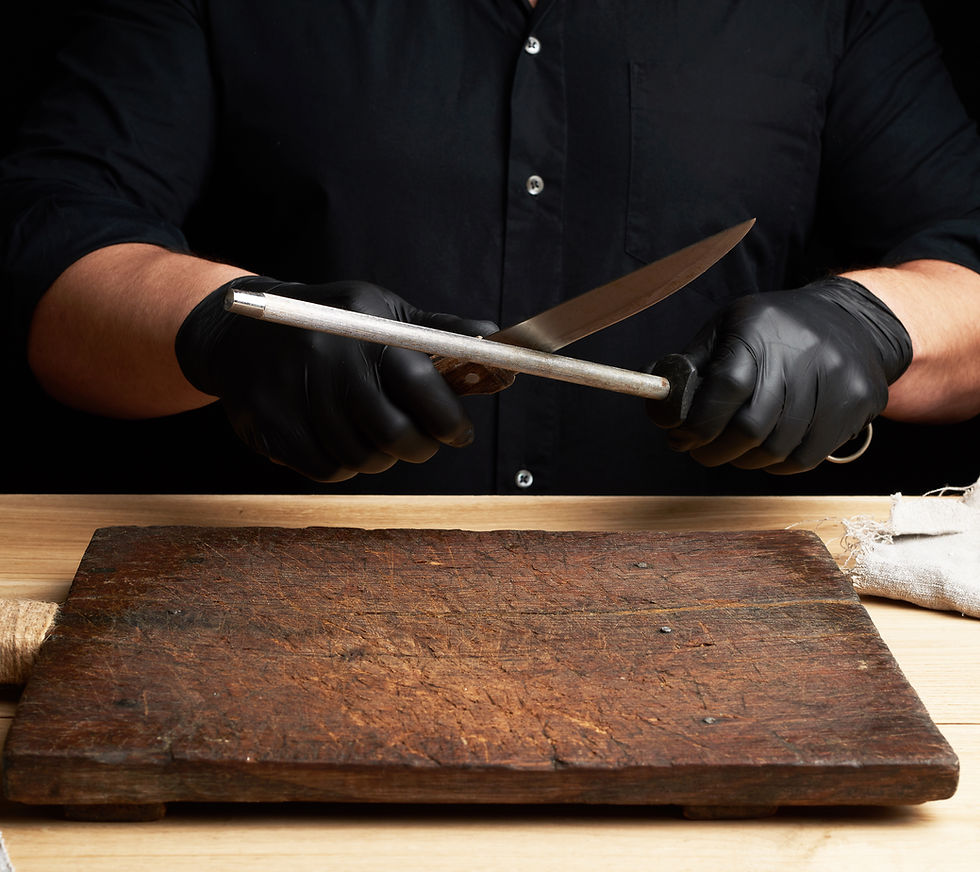Mastering Knife Skills: A Beginner’s Guide to Impress at Your Next Dinner Party
- Eric Vollono
-24.jpg/v1/fill/w_320,h_320/file.jpg)
- Jun 28, 2024
- 2 min read
Hello, food enthusiasts! Chef Eric here, your personal chef in Denver. Today, we’re diving into one of the most fundamental and exciting aspects of cooking: knife skills.
Whether you’re a beginner chef, a home cook, or someone looking to wow your friends at your next dinner party, mastering knife skills is a game-changer.
1. Choosing the Right Knife
Before we start chopping, let’s talk about the tools. Having the right knife makes all the difference. Here are three essential knives every kitchen should have:
Chef’s Knife: The workhorse of the kitchen. Perfect for chopping, slicing, and dicing.
Paring Knife: Ideal for smaller tasks like peeling and intricate cutting.
Serrated Knife: Great for cutting bread, tomatoes, and other soft or crusty items.
2. The Proper Grip
How you hold your knife is crucial for safety and efficiency. Here’s a simple way to grip your knife correctly:
Pinch Grip: Pinch the blade where it meets the handle with your thumb and index finger. Wrap your other three fingers around the handle.
Handle Grip: If you’re not comfortable with the pinch grip, hold the handle firmly with all your fingers.
3. Basic Knife Techniques
Let’s dive into some basic techniques that will elevate your cooking skills.
Chopping
Place your knife on the vegetable with the tip touching the cutting board.
Use a rocking motion to cut through the vegetable, keeping the tip on the board.
Slicing
Hold the vegetable firmly with your non-dominant hand.
Use a forward and backward motion to slice through the vegetable evenly.
Dicing
First, slice the vegetable into even slices.
Stack the slices, then cut them into sticks.
Turn the sticks and cut across them to create dice.
4. The Claw Technique
To protect your fingers, use the claw technique with your non-dominant hand:
Curl your fingers under, keeping your thumb tucked behind them.
Hold the food with your knuckles facing the knife.
This technique ensures that your knife slides along your knuckles, keeping your fingertips safe.
5. Practice Makes Perfect
The best way to improve your knife skills is to practice regularly. Start with simple vegetables like carrots, cucumbers, and onions. As you become more confident, try more challenging items like herbs or even fish.
If you’re eager to take your culinary skills to the next level, I’d love to help! Whether you’re interested in private cooking lessons, a catered event, or a personalized dining experience, feel free to reach out.
Visit my website and fill out the contact form to schedule a consultation. Let’s make your next dinner party unforgettable!








Comments